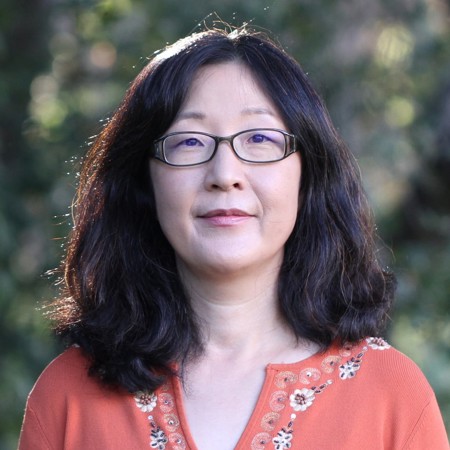Seung Yon Rhee
Director, Plant Resilience Institute
Professor, BioMolecular Science Gateway
Faculty, Molecular Plant Sciences Program
Professor, Plant Biology
Institute/Center Director-Management, Cell & Molecular Biology Program
Professor, Genetics & Genome Sciences Program
Pronouns: She/Her
Location: 249 Administration Bldg
Email: rheeseu6@msu.edu
Website: https://www.rheelab.org/
CV: Download CV
Bio
Seung Yon (Sue) Rhee will join MSU as a Full Professor in the departments of Biochemistry and Molecular Biology, Plant Biology, and Plant, Soil, and Microbes, an MSU Foundation Professor, and Director of MSU’s Plant Resilience Institute. She has a diverse and interdisciplinary research experience ranging from plant development, plant metabolism, bioinformatics, genomics, and computational modeling. She has extensive leadership, mentoring, and research experience and has trained over 160 scientists, many of whom have achieved leadership positions in academia, government, and industry. Rhee received her B.A. in biology from Swarthmore College in 1992 and a Ph.D. in biology from Stanford University in 1997. After graduation, she worked as a biocurator for the Arabidopsis thaliana Database (AtDB) at Stanford University’s Genetics department. In 1999, she led a successful proposal to establish a comprehensive genome database for Arabidopsis and became the Founding Director of the Arabidopsis Information Resource (TAIR), the largest NSF project dedicated to plant research at the time. In the same year, she assumed a position of a Staff Associate at the Carnegie Institution for Science’s Plant Biology Department. She rose through the ranks at Carnegie to Staff Scientist, Director, and Senior Staff Scientist between 1999 to 2022, and will become Senior Staff Scientist Emeritus in 2023 when she retires from Carnegie and starts her position at MSU. She has extensive leadership and community service experience with having served on over 25 international academic, government, and industry scientific advisory boards, steering committees, and review boards. She has also initiated two grassroots, international scientific communities, one on biocuration and second on plant cell atlas. Rhee is particularly interested in training future leaders who represent underrepresented groups and who are interested in working on neglected research and societal problems. Her group strives to uncover the molecular mechanisms underlying adaptive traits in the face of heat, drought, nutrient limitation, and pests. They employ computational modeling and targeted laboratory testing to study mechanisms of adaptation, functions of novel genes, organization and function of metabolic networks, and chemical and neuronal code of plant-animal interactions. They are also interested in developing translational research programs involving engineering resilience and metabolic traits in bioenergy and cover crops. She emphasizes training scientists to explore the unknown and become independent in the pursuit of knowledge. While providing individualized training and mentoring program suited for each member, she strives to transition each trainee on creating and fostering agency to own their work and projects. Rhee plays a consulting and advisory role on the projects driven and owned by the trainees. Rhee is committed to creating a rigorous, collaborative, and innovative training environment. Expectations of lab members, which are elaborated on their lab website (https://www.rheelab.org/policies--expectations.html), are clearly communicated and discussed during recruitment, onboarding, and regularly throughout the tenure of each member. Rhee emphasizes responsible conduct of research, leadership, and communications in her training. Leadership based on service to fellow lab members, mentees, and the larger community in the department is highly valued, encouraged, recognized, and acknowledged. Every member of the Rhee lab plays active roles in improving the professional development and work environment for everyone in the lab and department. She meets with each lab member regularly (weekly or biweekly) and discuss not only their research design, implementation, data analysis, visualization, interpretation, and presentation, but also scholarly leadership, communication skills, teaching and mentoring skills, career planning, outreach and community leadership, and wellness and self-improvement. Her group performs individual development plans every six months and constantly evaluate how the training program is going via surveys, one-one meetings, and group discussions. #Links * [Website](https://www.rheelab.org/) * [Google Scholar Citations](https://scholar.google.com/citations?user=GHA2TtYAAAAJ&hl=en) * [Twitter](https://twitter.com/SueRhee2) * [LinkedIn](https://www.linkedin.com/in/sue-rhee-5a46224/)
